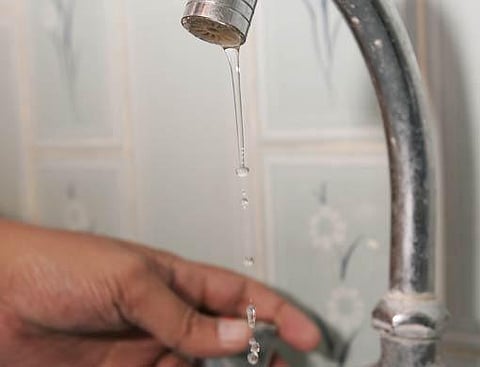Wasteful behaviour needs to be curbed
Sustainability experts call for action so that we do not rob future generations of the ability to meet their needs

Abu Dhabi: The environmental impact of a resident in the capital, in terms of water usage, wastage and carbon emissions, is 350 times more than the earth can sustain, said an expert in the capital recently.
An average resident in Abu Dhabi used 450 litres of water in 2009, produced six times as much waste as an average French citizen and was responsible for four times the carbon emissions as a resident in Norway, said Darin Rovere, a sustainability consultant at the Abu Dhabi Sustainability Group (ADSG).
He added that one in five residents in the UAE was prone to be diabetic, compared to one in 50 in Norway, and stressed that all of these figures were applicable to people in the other emirates.
"This calls for urgent action on an economic, environmental and social scale so that we do not rob future generations of the ability to meet their needs. Abu Dhabi needs to reduce its build-up of chemical waste, prevent degradation of its natural resources and reframe relationships with workers to continue attracting the best foreign workers," Rovere said.
Majid Al Mansouri, secretary general of the Environment Agency Abu Dhabi (EAD), said one of the most important things to do was to set achievable short and long-term targets and measure performance against them.
"I also applaud the publishing of these reports, which makes each firm accountable to its stakeholders and the wider public to deliver on their sustainability targets. I hope, as we proceed, more organisations will commit themselves to sustainability targets and that sustainability will be taught to future generations as part of their education as well," Al Mansouri added.
Paper used annually as high as 17 NBAD head office towers
Belinda Scott, corporate sustainability and responsibility officer at the National Bank of Abu Dhabi, spoke to Gulf News on the sidelines of the meeting, and put into perspective the need for sustainability in an individual organisation.
"We found out that if we stack all the paper we used at our bank annually, it would make a tower 3 kilometres high. Our water consumption is 25 per cent of all the water in the Dead Sea. Now that we know all this, we are beginning to implement what we have learned about sustainability into our operations, and are calculating the cost savings and the environmental and social benefits of adopting sustainable business practices."
Airlines: Biofuel energy
Vijay Poonoosamy, vice-president of international and public affairs at Etihad Airways, told Gulf News that the company was pushing for the use of more biofuel. "Our problem is that our operations are dependent on fuel consumption. So it is important to switch to a more sustainable source than fossil fuels. Accordingly, we are pushing the IATA and other airline fuel suppliers to switch to drop-in fuels, which have quantities of biofuel mixed with fossil fuels," Poonasamy said.
Are you aware of how much water you use or garbage you accumulate in a day? What are you doing to reduce your carbon footprint? What can the UAE do to reduce its overall footprint and replenish its natural resources?



